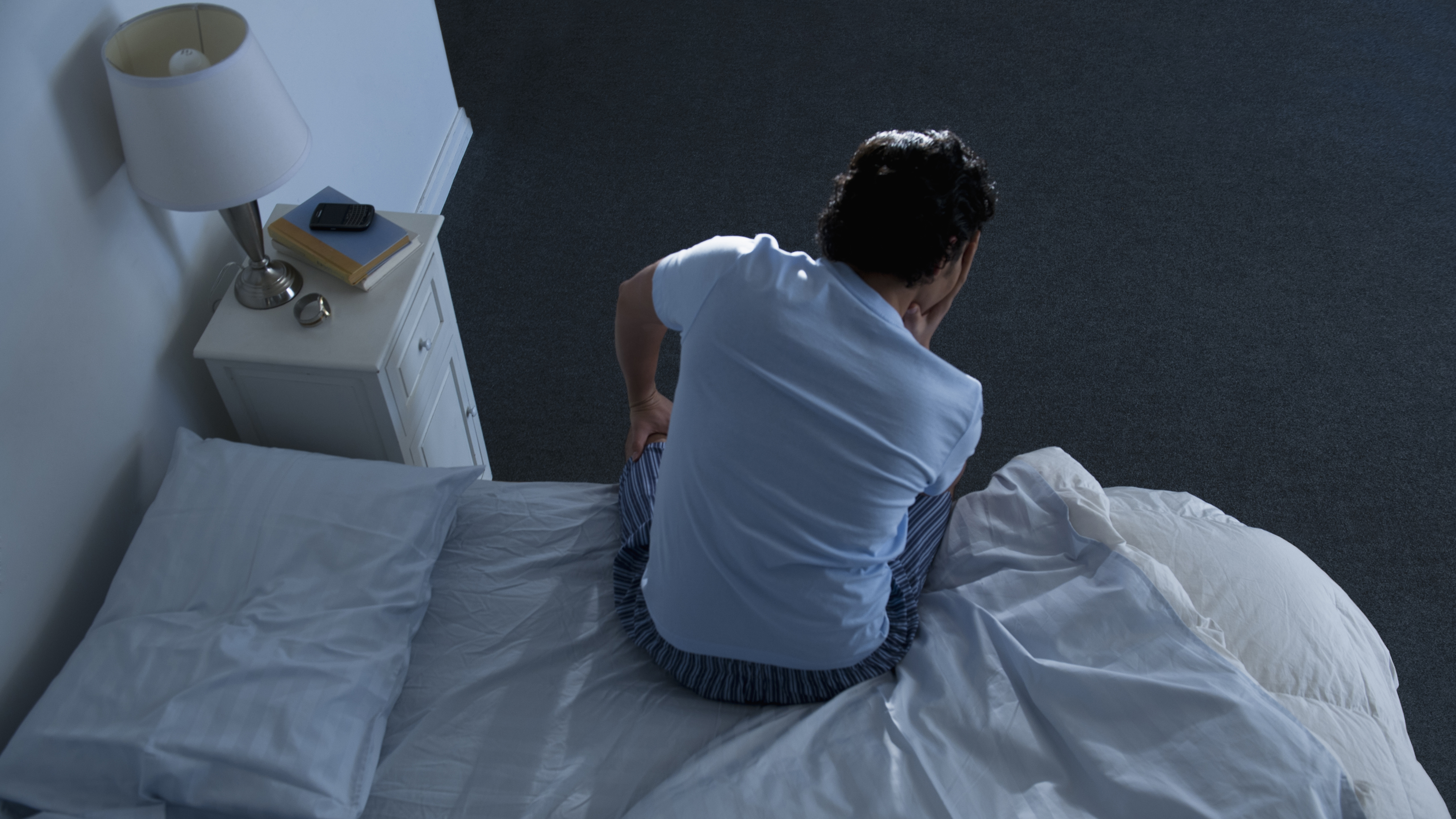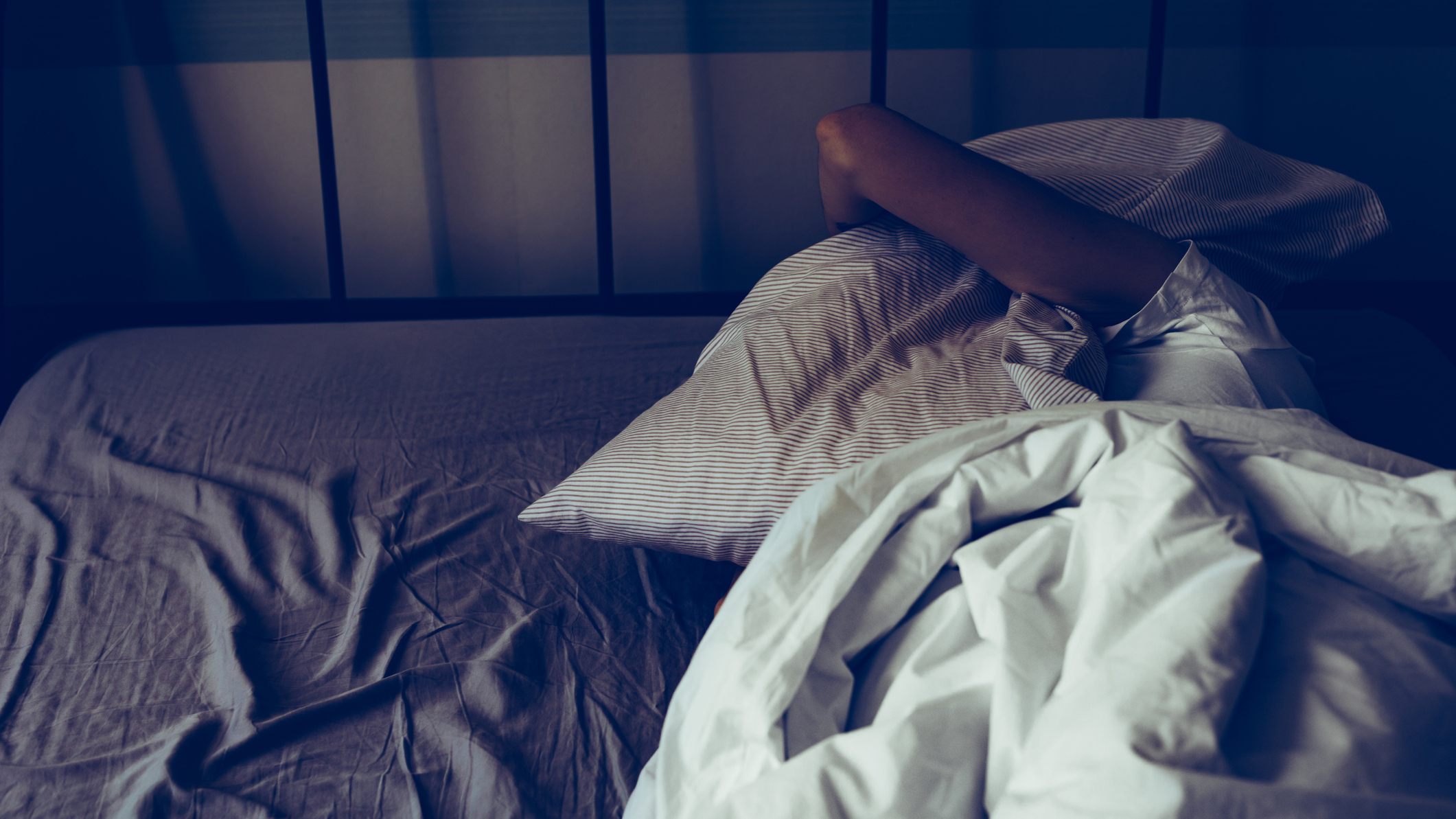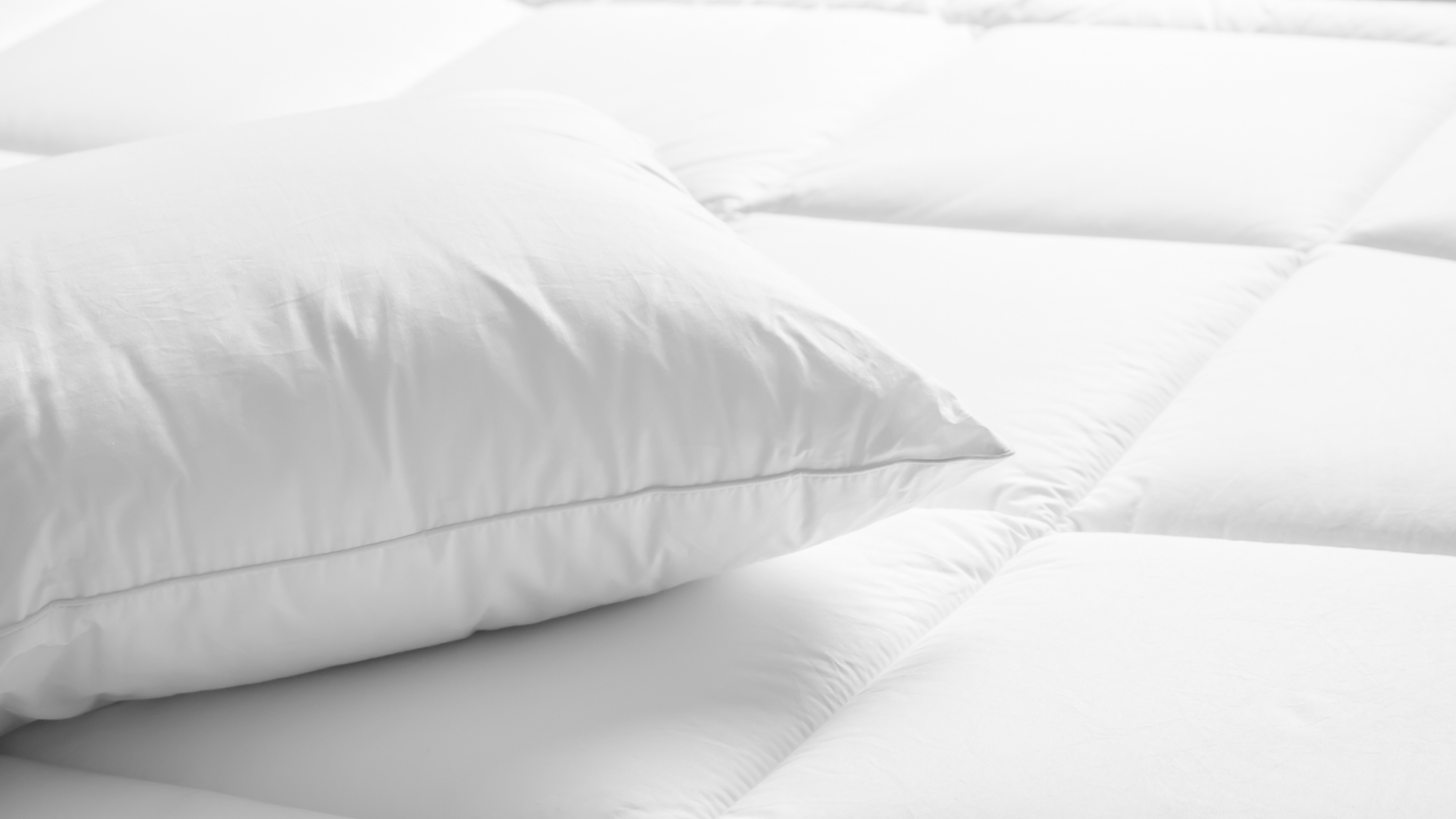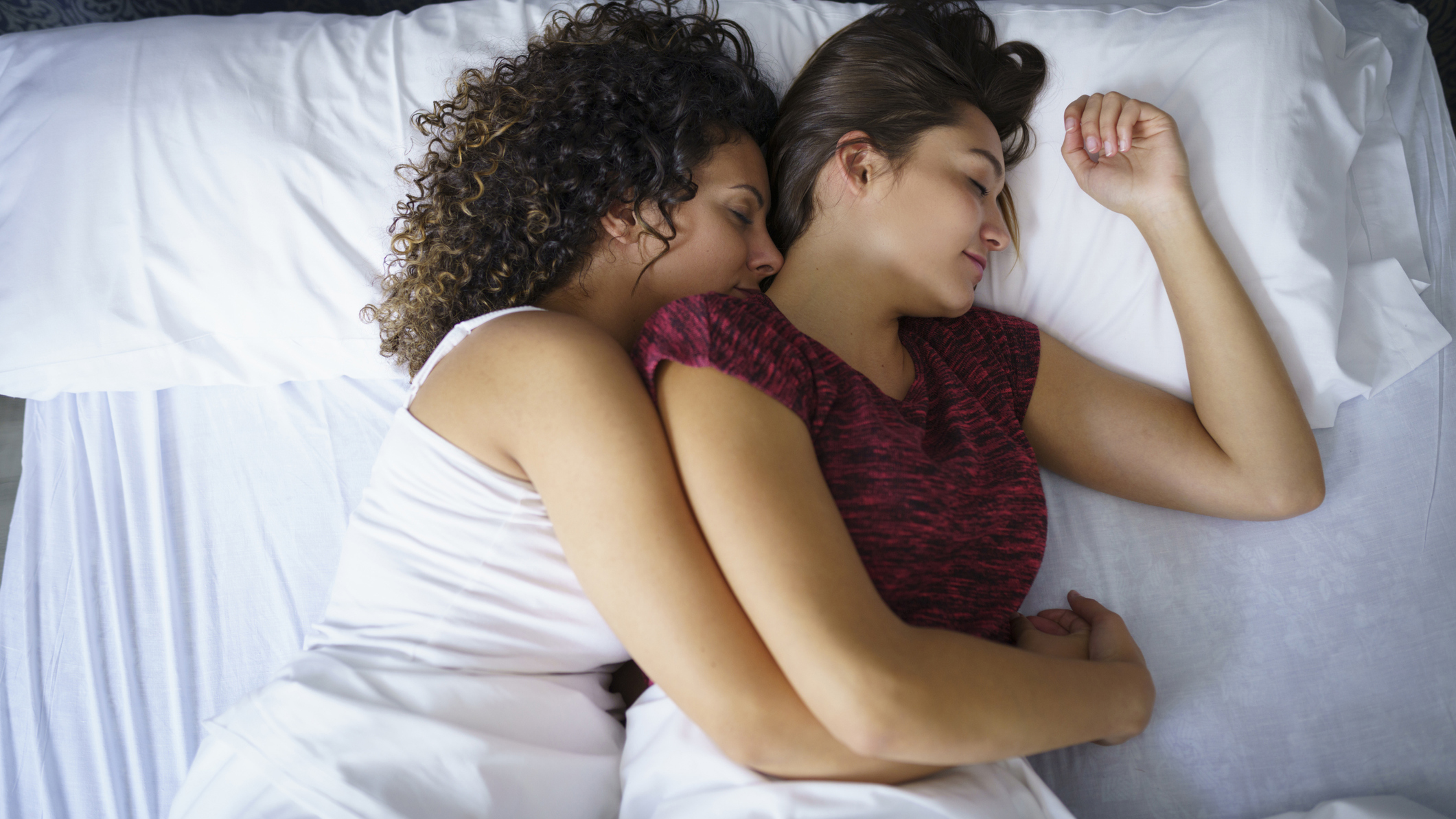How to sleep through the night: a sleep expert explains all
A sleep expert explains the common causes of waking in the night and reveals how you can sleep through

Sign up for breaking news, reviews, opinion, top tech deals, and more.
You are now subscribed
Your newsletter sign-up was successful
Waking up in the night is something we all do, but it becomes a problem when you wake up in the middle of the night and find you're unable to get back to sleep. It's frustrating and it can leave you feeling tired and irritable the next day, but why does it happen? And more to the point, how can you ensure a better night's sleep without interruptions?
To help you sleep better we've taken a long hard look at research into insomnia and pulled out some of the main reasons why you might be waking up in the night. We also spoke to Dr Lindsay Browning, a chartered psychologist, neuroscientist, author and an expert in sleep problems, to get her insight into what can trigger insomnia and to pick up some expert tips on how you can sleep more soundly every night.
Night after night of broken sleep isn't something you have to put up with; here's what you need to know about getting more regular and restful sleep...
Is it even possible to sleep through the night without waking up?
If you’re waking up through the night, don’t panic – this is completely normal. “We always wake up through the night, from when we’re born right through to the end,” explains Dr Browning. “But we only remember it if we’re awake long enough to process it.”
While some of us might not register a few seconds of awakenings throughout the night, others can become fully aware of them, and some may struggle to drift back off to sleep.
If you’re in the second camp, you might have sleep maintenance insomnia, which Harvard Health describes as a “difficulty staying asleep, or waking too early and struggling to get back to sleep”.

This is one of the two main types of insomnia, which itself is defined as “persistent difficulty in sleep initiation, duration, consolidation or quality” by The American Academy of Sleep Medicine.
Sign up for breaking news, reviews, opinion, top tech deals, and more.
“People will often start to worry if they become aware of these breaks in their sleep, thinking, ‘I need to go back to sleep quicker’,” explains Dr Browning. “This stress and anxiety can lead to you not being able to go back to sleep at that point.”
Sound familiar? Don’t worry, there are things you can try to help you break free of the cycle...
Waking up at night: five common culprits
Unfortunately, there are numerous health risks associated with long-term poor sleep, including diabetes, hypertension, obesity, heart attack and stroke. It can also be detrimental for our mental health.
Knowledge is power, so tackle the problem head on by asking yourself whether any of the following potential culprits of waking up at night apply to you, and consider seeking the advice of your doctor if so:
1. Nocturia: Are you waking up more than once a night to urinate? If so, you might have nocturia, a condition thought to affect around one in every three people over the age of 30.
2. Alcohol: “Alcohol is really bad for disrupting sleep continuity,” advises Dr Browning. “It might help you fall asleep quickly, but you’re much more likely to wake up early in the morning.”

3. Physical discomfort: Your mattress could be the culprit waking you up in the night, “especially if it’s too hard or too soft,” says Dr Browning. Make sure you have the right one for your needs. Need some pointers? Then see our guide to the best mattress for all budgets.
4. Restless legs syndrome: This is a condition that causes an overwhelming need to move your legs. It’s typically worse during the night when you’re trying to rest, which understandably makes it difficult to fall asleep or fall back to sleep after waking up.
5. Sleep apnea: If you’re a loud snorer or someone who still feels tired even after a good night’s sleep, you could have sleep apnea. This is a serious disorder in which your breathing repeatedly stops and starts through the night.
Speak to your doctor as soon as possible if you suspect sleep apnea is stopping you from sleeping through the night.
How to sleep through the night: dos and don’ts
“It’s pretty much impossible to stop the awakenings, but what we can do is try and make them as short as possible, so we can go back to sleep without realising that we’ve had them,” reveals Dr Browning.
To do this, give the following a try:
DON’T drink caffeine close to bedtime. “Caffeine has a five to six-hour half-life,” explains Dr Browning. “If you’re tired enough you will fall asleep quickly even if you’ve had a coffee after dinner. But that caffeine is still in your system at 2/3/4 in the morning, so when you wake up, you might be more awake and alert, making it harder for you to fall asleep again quickly.”

DO create a bedtime routine – and stick to it. “Give your brain time to wind down, both physically and mentally, to help you transition into sleep,” advises Dr Browning. “The regularity of a routine also means you’ll start to get used to what’s coming next, so your body will start to get sleepy.”
As we discuss in our guide on how to create a bedtime routine for adults, yours could include relaxing with some gentle yoga or meditation, or reading a calming book – no thrillers or gripping adventure stories!
DON’T nap during the day. Getting through the day after a bad night’s sleep can feel like an uphill struggle, but while napping might make you feel better in the short term, it can make it harder for you to fall asleep again that night.
DO go to bed and wake up at the same time every day. “Having a regular bedtime and wake-up time, seven days a week, even though it’s boring, is absolutely the best thing for your sleep,” says Dr Browning.
“This means your circadian rhythm, your 24-hour clock, knows when to start you being sleepy at night, and when to wake you up in the morning. If you get up and go to bed at different times, you’re essentially giving yourself jet lag, meaning you might struggle to fall asleep or wake up too early.” A misalignment of circadian rhythm and sleep times is known as social jet lag, and studies indicate that almost 50 per cent of us might suffer from it.
Does melatonin help you sleep through the night?
“Melatonin is a hormone we produce naturally to tell us when to go to sleep,” explains Dr Browning. Our melatonin levels naturally rise in the evening, about two hours before we go to sleep.
Help your body to harness the natural power of melatonin by ensuring you’re exposed to enough natural light during the day. Then surround yourself with softer, dimmer lights during the evening, to make the most of melatonin’s sleep-inducing signals.

Most importantly, stop using electronic devices such as phones and laptops at least an hour before bed (or switch to Night Mode), as these emit a blue light that can neutralise the effects of melatonin.
How to sleep better at night: natural sleep aids
We’ve covered a few natural sleep aids so far, including creating a bedtime routine (and sticking to it), avoiding electronic devices, cutting out caffeine and dimming the lights. There are also a few other natural sleep aids you can try...
Start by considering your dinner. “Foods like nuts and seeds, turkey, white meat, and salmon contain naturally high levels of tryptophan, a precursor of melatonin,” shares Dr Browning. “So if you have them before bed, you can increase your body’s ability to produce its own melatonin.”
“Sometimes people struggle to sleep because they have a magnesium, iron or vitamin B12 deficiency. As a therapist, I recommend you check with your GP before taking a multivitamin or supplement.”
You could also try a calming cup of chamomile tea, or a spritz of a lavender pillow spray to relax your mind and get you ready for a full night’s sleep. Try and switch your thinking to relaxing, happy thoughts. There's evidence to suggest nostalgia can help sleep, so try and immerse yourself in a calming childhood memory.
How to sleep through the night if you own pets
As much as we love our pets, they can sometimes make bad bedfellows. So if your furry friend regularly wakes you up throughout the night, it might be time to consider giving them their own place to sleep.
This could be a snuggly bed in a separate room, with the doors shut so that they can’t disturb you. Of course, some people find they sleep better with the comfort of their pet in their bedroom, in which case – snooze on.

Dr. Lindsay Browning is a chartered psychologist, neuroscientist, author and sleep expert who is passionate about helping people to improve their sleep. She's an Associate Fellow of the British Psychological Society, a member of the British Sleep Society and a member of the American Academy of Sleep Medicine, and has published several academic papers and an international self-help book: Navigating Sleeplessness.
Read more:
- The best wake up lights for all budgets
- The best mattress toppers for instant comfort
Sarah is an award-winning freelance journalist covering sleep for TechRadar. As a long-suffering insomniac, she has written about sleep for many years, from features and product reviews to launching Stylist’s Sleep Diaries franchise. She has written for publications including The Times, The Guardian Weekend, The Independent, Woman & Home and more.
